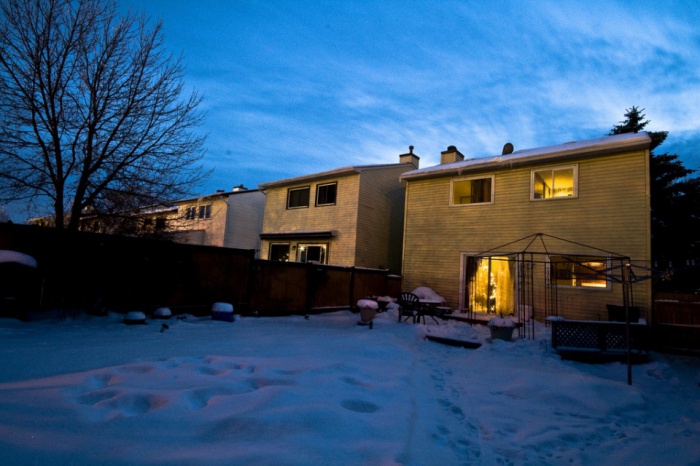 Winter Dusk by Justin Scott Campbell
Winter Dusk by Justin Scott Campbell
Summer 2011 has officially ended. While we can still catch a glimpse of sunlight here and there, the colder days are inevitably coming. Besides preparing our closets for the cold season (retro, black&white, and paint box colours seem to be in), we should also prepare our homes for the temperature drop.
- Inspect your air and heat systems. Your windows will be mostly closed during the following months, so the air quality will be largely dependent on your heating and air systems. Calling a HVAT expert is the easiest way. He or she should turn of your air conditioner and inspect the furnace. He or she can also change the air filters and clean the ducts. Let him or her see your heat recovery ventilation as well, if you have any.
- Do not forget to clean and test your humidifier. You should set it at about 40% during winter to keep down water condensation on your windows.
- A fireplace makes winter cozier. Just don’t forget to consider when you had your last chimney cleaning. Have a look at the dumper; its proper functioning can save you a bundle since the chimney is often the most problematic thermal bridge. Change the batteries in your CO detectors as well.
- Talk a look at your attic. Have any rodents, birds, or other creatures built their winter homes there? Check your soffits to see if the air is flowing freely. While sealing your attic may seem reasonable on the first look, it’s not. An obstructed airflow causes the ice and snow to melt, run down, and then refreeze, causing damage to your shingles and framing.
- Get rid of dust. Since the airflow will be limited in the following months, fall is the right time to clean your house properly. Focus on carpets, ventilation, and heating elements. If you plan any renovation, which will create dust, do it now.
- Do a bit of landscaping. Plants are preparing for their winter sleep, and this is the opportunity to fertilize. Inspect larger trees, especially those close to your house. Snow cover can break weaker branches, which can subsequently damage your property.
- Prepare for autumn rains and the spring thaw. Excess water should flow away from your home’s foundation, or else it can cause serious dampness in your cellar, or even damage the foundations. Clean gutters and downspouts (you will have to do this more times if you have a lot of trees around).
- Prepare your engine-run tools like lawnmowers for winter and move any unnecessary tools and furniture indoors. Drain hoses, empty water barrels, and close indoor water valves (leave the outdoor taps open so remaining water will not freeze and destroy them).
Thanks for droping buy and leaving a coment and adding to the discussion. In a a week or so I would love to add your article to our site. Let me know if this is Ok with you. Have a great weekend.
“Be Prepares, Stay Safe and Survive.”
Robert Studer
Survival Central